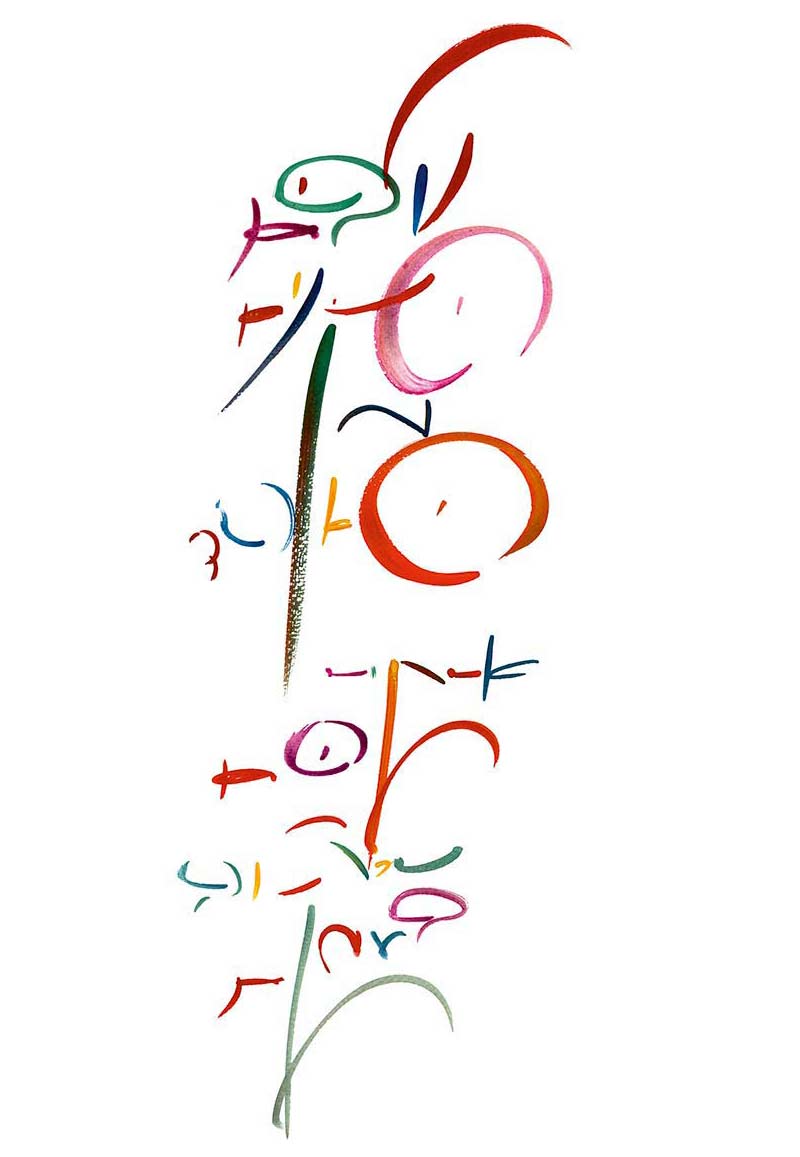Research and Fellowships
Working Groups
 Izzy Pludwinski's Two Are Better Than One, 2002, "The Beauty of the Hebrew Letter," Brandeis University Press.
Izzy Pludwinski's Two Are Better Than One, 2002, "The Beauty of the Hebrew Letter," Brandeis University Press.
The field of teaching second/foreign languages requires language teachers to include the study of culture in their teaching goals. This requirement creates the need to train them in tools to understand all aspects of the target culture as well as the pedagogical approaches used in their classroom. This development has presented a new challenge for teacher training programs. The goal of this working group is to unpack these challenges in the context of programs that train Hebrew educators by inviting a group of researchers and practitioners from a variety of academic disciplines to discuss the following topics:
- Current research on best practices on how to train foreign language teachers to include the teaching of culture in their curriculum;
- Development of Israeli culture;
- Israeli culture through the lens of Israeli literature, visual, and performing arts;
- Hebrew language as representation of culture;
- The role of the “other” in the development of Israeli culture;
- New trends in pedagogical approaches in teaching culture in language classrooms.
Fellowships
The Consortium for the Teaching of Hebrew Language and Culture offers Hebrew-proficient Brandeis students the opportunity to gain knowledge and professional experience in teaching Modern Hebrew at Jewish day schools in the Greater Boston area. Fellows both observe and participate in teaching in K-12 classrooms.
Each Hebrew Fellow is assigned a mentor who instructs on pedagogies that Fellows apply in Hebrew classes. Fellows shadow their mentors in the classroom for 10 hours and spend additional time in the classrooms over two months supporting their mentors and students.
The Fellows submit reflections on their Hebrew fellowship to share their impressions.
The Consortium, in collaboration with the Brandeis Hebrew Program, offers Brandeis undergraduates the opportunity to shadow a Hebrew native speaker whose expertise is related to the student's academic and professional interest. This experience can take place in the U.S., Israel or other locations, including the student's home country. A final project such as a research paper or a creative product (e.g., literary work, short documentary film, etc.) that reflects the student's experience is required after the duration of the fellowship. This exciting opportunity is made possible by a generous gift from the Morningstar Foundation.